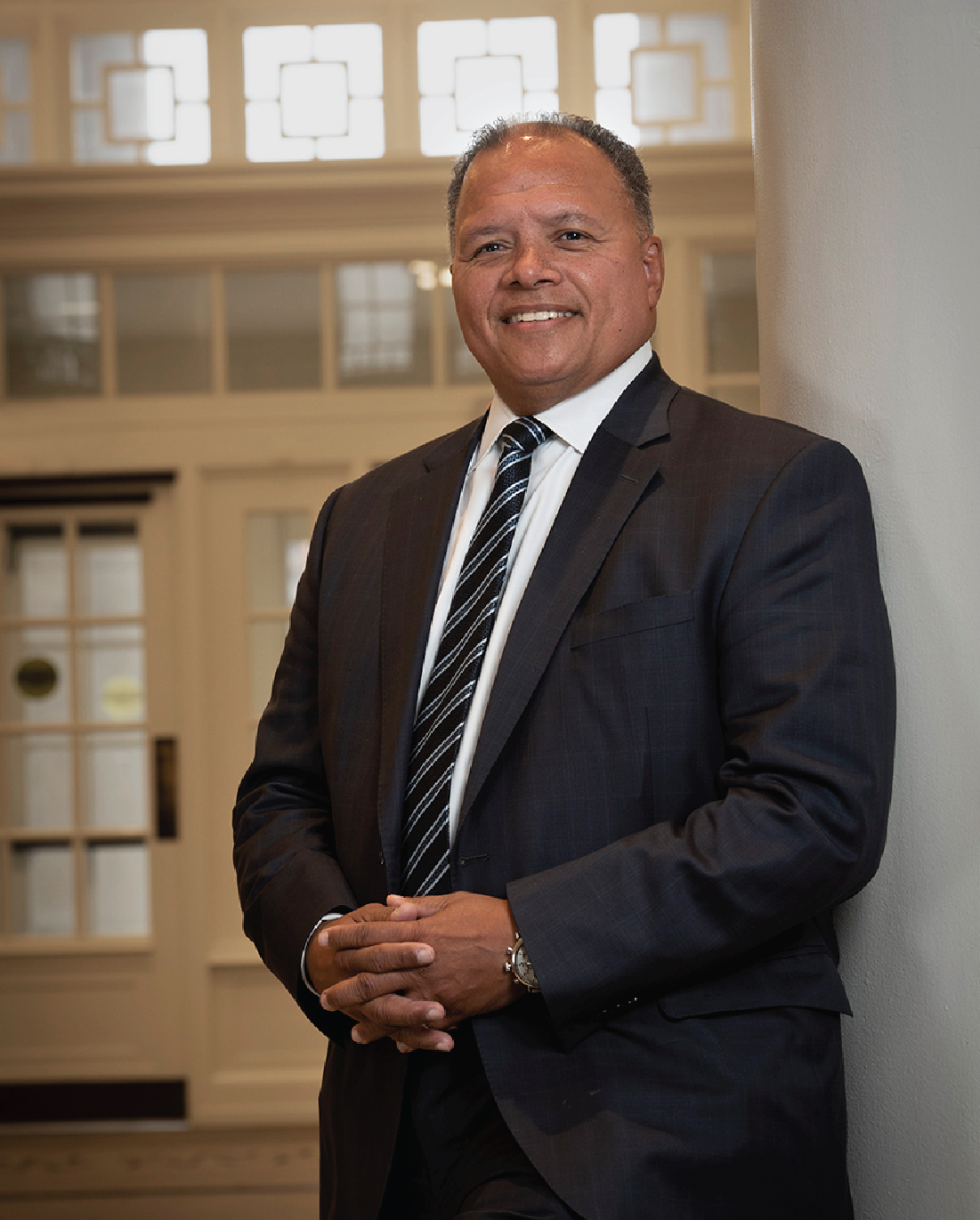
President, Brigham and Women’s Hospital
Executive Vice President, Mass General Brigham
(Photo by Stu Rosner)
Was there an aha moment that led you into thoracic surgery or did your interest develop gradually?
There was definitely an aha moment! On my first day as a surgery intern at the University of Pittsburgh, I was told to get a patient ready for surgery. So, I went into the room and fired off a bunch of orders. The nurse who was taking care of the patient looked at me and said, “I don’t even know who you are!” So, while she called the chief resident to verify who I was and the instructions I had given, I waited patiently, but was nervous about what would happen next. That nurse turned out to be really sharp and a future cardiac transplant coordinator. When I completed my residency, we got married. My wife has been coaching me on doing the right thing ever since!
You can overcome anything, but you must invest in yourself and do something with your mind and your heart.
Tell us about your path to becoming the first Black president of the Brigham.
I wasn’t looking for the opportunity. I was nominated, which was a complete surprise. But I was humbled to be recruited to such an outstanding medical center. I’ve been the first person of color in leadership everywhere I’ve been, thanks to the mentoring and support of many people. I’m honored by the opportunity to lead the Brigham into a new chapter of collaboration and hopefully creating a more diverse and inclusive environment for the communities we serve.
You’ve worked on health equity throughout your career. What is a common misunderstanding or knowledge gap about health equity that you’d like to address?
Part of it is getting the concepts and definitions right. Health equity is about providing care and access to care to those who otherwise are underserved, and improving their health outcomes. Instinctively, we know access to care is important for eliminating disparities. What’s less obvious is how essential diversifying our workforce and research is to achieving health equity. So we must continue to recruit and retain the best and the brightest folks from every community we serve.
What would you tell your adolescent self from where you are now?
My wife tutors second and third graders in Baltimore who are behind in their reading, and she asked me to come talk to them. I think a lot of these kids probably internalize the deficiencies in their lives as obstacles they can’t overcome. So, I told them what I would tell my younger self: “You can overcome anything, but you must invest in yourself and do something with your mind and your heart.”
What keeps you up at night?
Wondering about different ways to surpass and outperform people’s expectations of me, while still maintaining a sense of collegiality, collaboration, and building consensus.
What energizes you?
Building strong, trusting relationships. My responsibility has been to facilitate the success of others, to treat them fairly and honestly in service to the common good. I believe these are the basic tenets of successful leadership, and when it’s working, it energizes and inspires me.
Where does your resilience come from?
My mom was a force to be reckoned with. After my dad died tragically when I was five and my brothers were three and one, my mom persevered and raised us three young men of color with my grandparents through tough circumstances. She insisted that we be well-educated, hard-working, and maintain commitments to serve others. Her grit and resilience in the face of a devastating loss set the example for us, and her vision for us lives on through the work we do.
Do you have a favorite quote or mantra?
I have at least three. Judah Folkman, MD, a longtime professor at Harvard Medical School, said, “As long as there is an unconquered disease, an injury that cannot be repaired, or a method of prevention that remains beyond reach, we have an obligation to conduct research.”
I’m also fond of Winston Churchill’s quote, “We make a living by what we get. But we make a life by what we give.”
And, regarding equity and inclusion, this one whose author is unknown, ‘‘Justice will not be served until those who are unaffected are as outraged as those who are affected.’’

